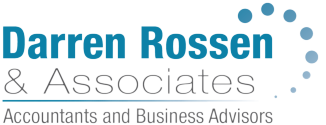
24 May 12 Ways to Reduce your Tax as an Individual
12 Ways to Reduce Your Tax!
The end of the 2013/14 financial year is almost here, so now’s the time to review what strategies you can use to minimise your tax.
#1 | Superannuation Contributions
Individuals may be able to make tax-deductible personal contributions to superannuation to reduce their taxable income. The advantage of this strategy is that superannuation contributions are taxed at 15% compared to typical personal income tax rates of between 34% and 46.5%.
Superannuation contributions are limited to $25,000 per year for persons under 60 as at 30/6/14, and $35,000 for persons age 60 to 75. Any contributions in excess of these limits can be taxed at a rate of 46.5%. Do NOT go over these limits!
Please contact us to verify that you can comply with all the eligibility criteria for this deduction. This includes satisfying the 10% test, meaning that less than 10% of the total of your income for the year must be in respect of your employment. For the purposes of this test, income is assessable income plus reportable fringe benefits plus reportable employer superannuation contributions.
#2 | Ownership of Investments
A longer term tax planning strategy can be reviewing the ownership of your investments. Any change of ownership needs to be carefully planned in relation to any capital gains tax and stamp duty implications. Please seek advice from your Accountant prior to making any changes.
Investments may be owned by a Family Trust, which has the key advantage of providing flexibility in distributing income on an annual basis and an ability for up to $416 per year to be distributed to children or grandchildren tax-free.
#3 | Property Depreciation Report
If you have an investment property, a Property Depreciation Report (prepared by a Quantity Surveyor) will allow you to claim depreciation and capital works deductions on capital items within the property.
The cost of this report is generally recouped several times over by the tax savings in the first year of property ownership.
#4 | Motor Vehicle Log Book
Ensure that you have kept an accurate and complete Motor Vehicle Log Book for at least a 12-week period. The start date for the 12-week period must be on or before 30 June 2014. You should make a record of your odometer reading as at 30 June 2014, and keep all receipts/invoices for your motor vehicle expenses.
#5 | Sacrifice Your Salary to Super
If your marginal tax rate is 19% or more, salary sacrifice can be a great way to boost your superannuation and pay less tax. By putting pre-tax salary into super rather than having it taxed as normal income at your marginal rate you may save tax. This can be especially beneficial for employees nearing their retirement age.
#6 | Prepay Expenses and Interest
Expenses relating to investment activities can be prepaid before 30 June 2014. You can prepay up to 12 months of interest before 30 June on a loan for a property or share investment and claim a tax deduction this financial year. Also, other expenses in relation to your investments can be prepaid before 30 June, including rental property repairs, memberships, subscriptions, and journals.
#7 | Insurance Premiums
Possibly your greatest financial asset is your ability to earn an income. Income protection insurance replaces up to 75% of your salary if you are unable to work due to sickness or an accident. The insurance premium is generally tax deductible, plus you get the benefit of protecting your family’s lifestyle if you cannot work due to sickness or an accident. It’s a small price to pay for peace of mind.
#8 | Work Related Expenses
Don’t forget to keep any receipts for work-related expenses such as uniforms, training courses and learning materials, as these may be deductible for tax purposes.
#9 | Realise Capital Losses
Tax is normally payable on any capital gains. You should consider selling any non-performing investments you hold before 30 June to crystallise a capital loss and reduce or even eliminate any potential capital gains tax liability. Unused capital losses can be carried forward to offset future capital gains.
#10 | Defer Investment Income & Capital Gains
If practical, arrange for the receipt of Investment Income (e.g. interest on term deposits) and the Contract Date for the sale of Capital Gains assets, to occur AFTER 30 June 2014.
The Contract Date is generally the key date for working out when a sale occurred, not the Settlement Date!
#11 | Qualify for a Government
Co-Contribution
If your total income is less than $48,516 you may be eligible for a super co-contribution from the Federal Government. For each dollar in personal after-tax super contributions, the Government will contribute from 50 cents up to a maximum co-contribution of $1,000 for those earning less than $33,516. (Thresholds to be confirmed in May 2014 Budget)
For the purposes of this test, total income is assessable income plus reportable fringe benefits plus reportable employer superannuation contributions, less allowable business deductions.
Please contact us to verify that you can meet all the eligibility criteria for the Government Co-Contribution.
#12 | Net Medical Expenses Tax Offset
Review your net medical expenses and consider prepaying net medical expenses if you are close to the $2,120 threshold (or the $5,000 threshold if your adjusted taxable income is above the applicable amount). From 1 July 2013, those taxpayers who received the offset in their 2012–13 income tax assessment will continue to be eligible for the offset for the 2013–14 income year if they have eligible out-of-pocket medical expenses above the relevant claim threshold. Generally, taxpayers who don’t claim the offset in this 2014 tax year will not be able to claim the offset in the 2014 or later tax years.
Talk to us TODAY before the 30 June 2014 deadline for assistance to reduce your tax! Please call Darren on 02 95426669 or email darren@rossenaccounting.com.au for more information.



Sorry, the comment form is closed at this time.